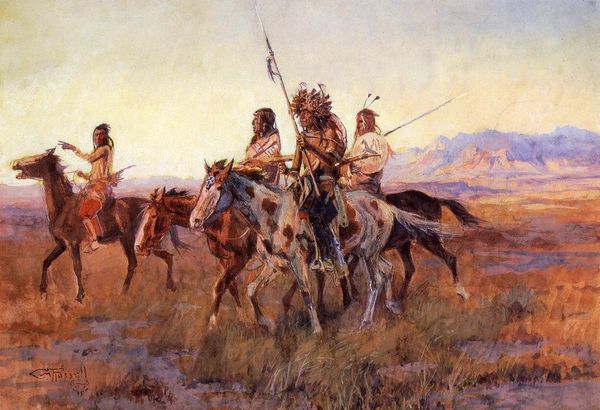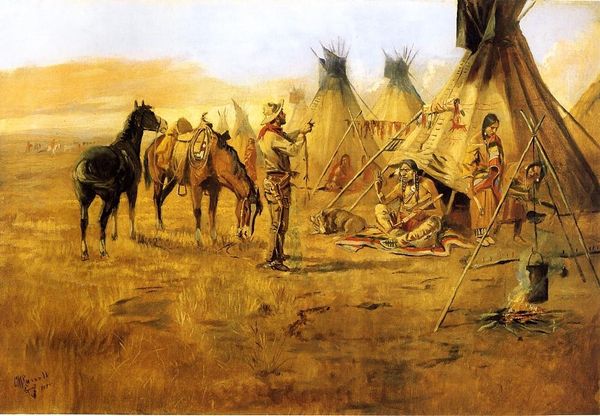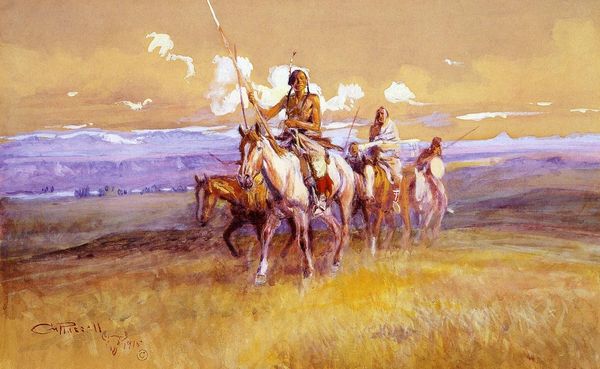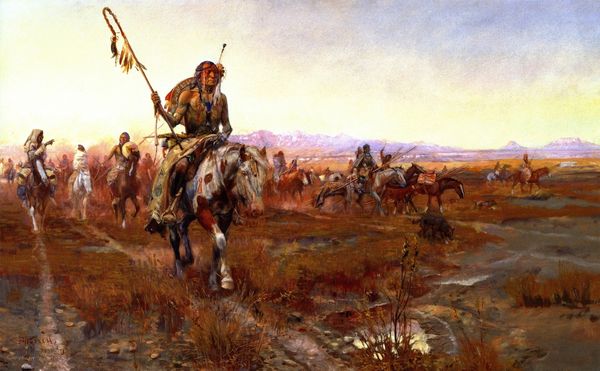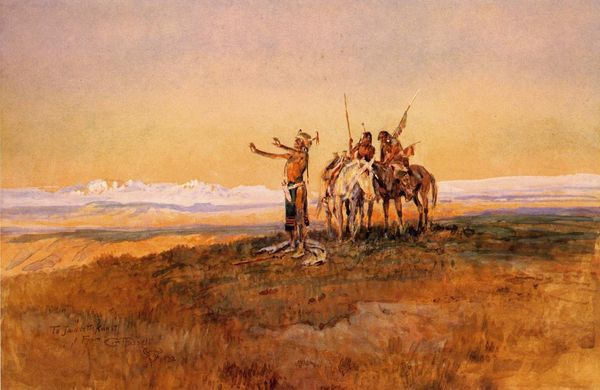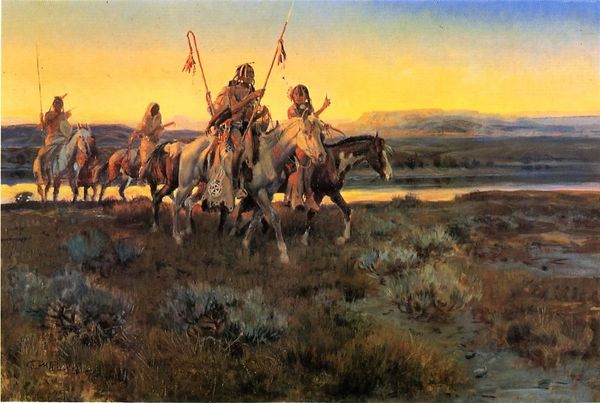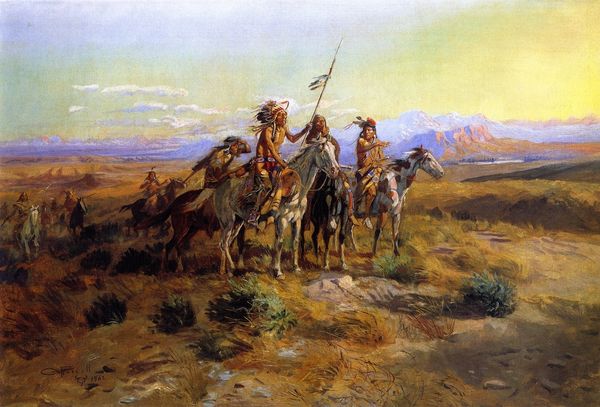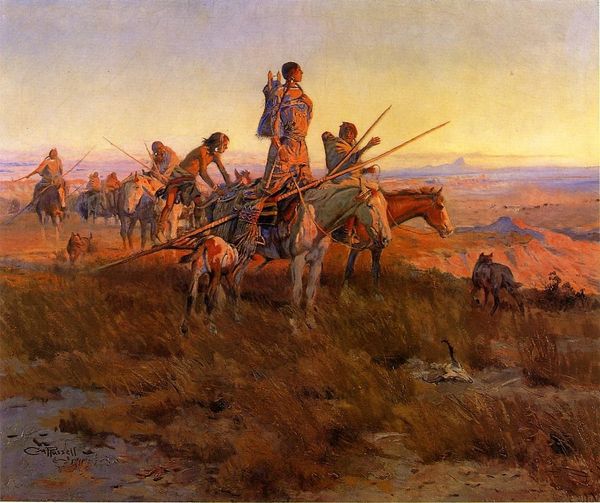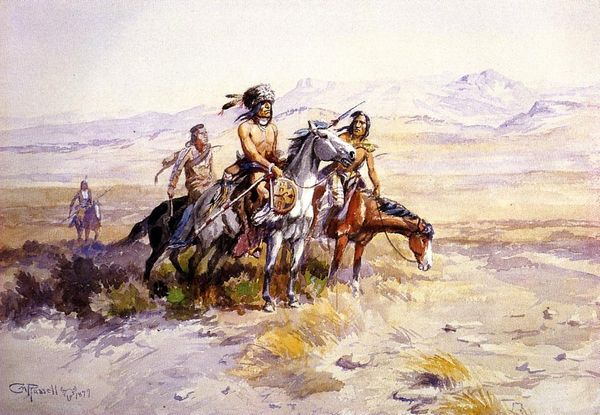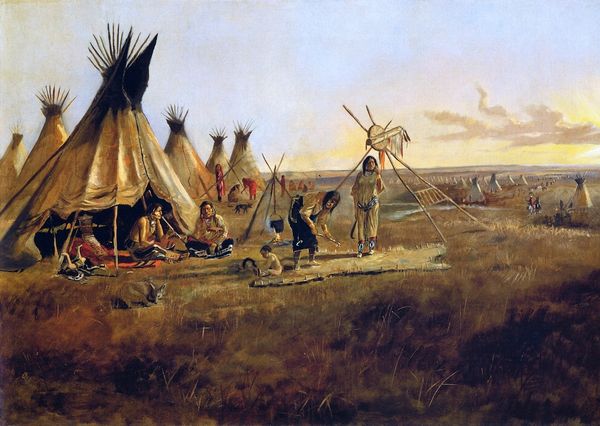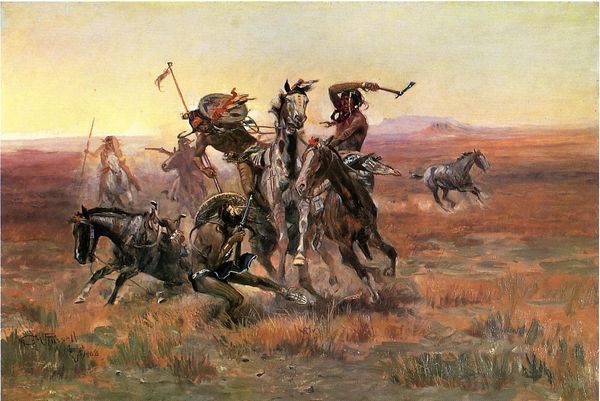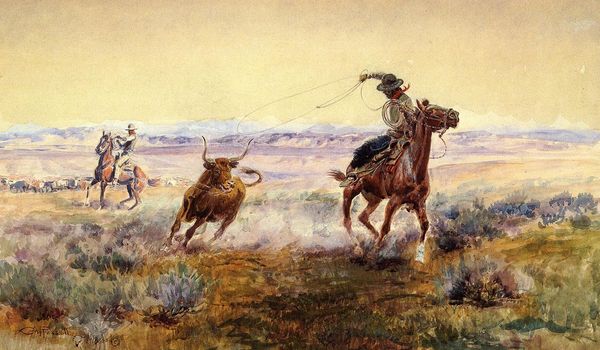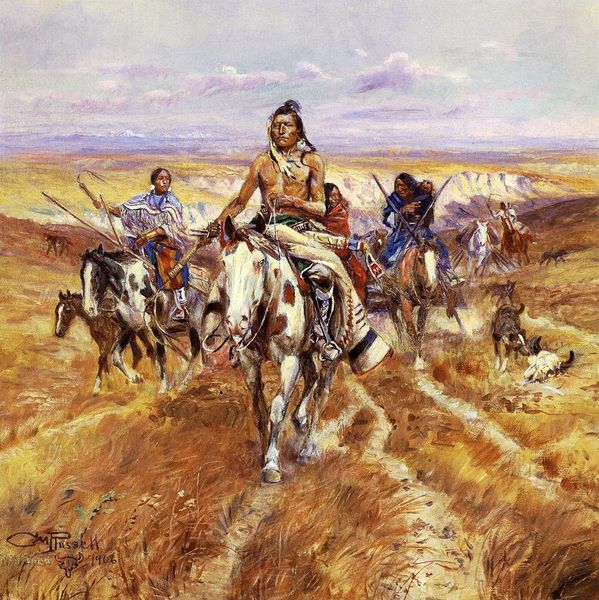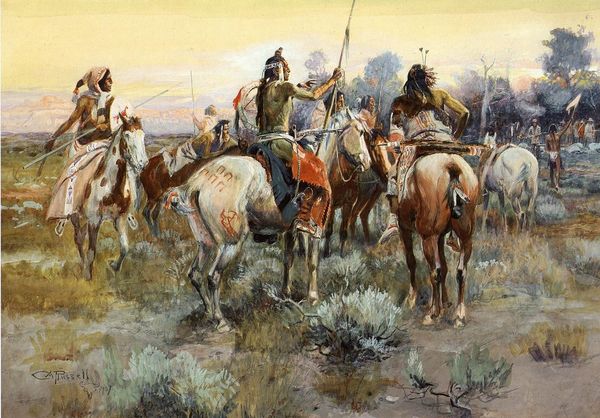
Copyright: Public domain
Curator: Immediately striking, isn’t it? A poignant moment of stillness rendered in oil. Editor: Yes, a definite air of melancholy. They’re consulting the earth itself, the light is fading…it speaks of endings. Tell me more. Curator: We're looking at Charles M. Russell's "The Lost Trail," painted in 1915. Russell, of course, was celebrated for his depictions of the American West. It portrays a group of Indigenous people seemingly searching for a lost path, a narrative he returned to multiple times throughout his career. Editor: That kneeling figure, reading the ground, feels archetypal. I wonder, is that about reliance on the land, ancestral knowledge? Or does the low angle suggest a loss of power, literally grounded in defeat? Curator: I think Russell understood the potency of both readings. He witnessed the profound changes to Indigenous life and land, especially considering the pressures of settlement. His works frequently play with that tension – romanticized views and historical reality. Note the feathered headdress; a signifier of power. Editor: It’s a powerful image but the horse stands alone, almost slumped over. The horse represents freedom and is tethered; a tragic juxtaposition. It enhances that feeling of quiet desperation. And that distant mesa, barely visible. Does that imply a hoped for path into the future, beyond the material plane, or is that wishful thinking on my part? Curator: Well, landscapes have long been imbued with symbolism. Russell uses this romantic backdrop of the setting sun to show that perhaps it represents lost identity during forced assimilation. But these are my interpretations through the lens of contemporary academic work. Back then, it likely would've been framed quite differently in museums and popular understanding of the American West. Editor: The symbolism remains incredibly layered, resonating long after its creation. One senses this captures a larger societal reckoning that these men face. It acts as a testament to endurance but a eulogy to the world they knew. Curator: Absolutely, a potent combination that speaks to the complexities of memory, loss and the American West.
Comments
No comments
Be the first to comment and join the conversation on the ultimate creative platform.
